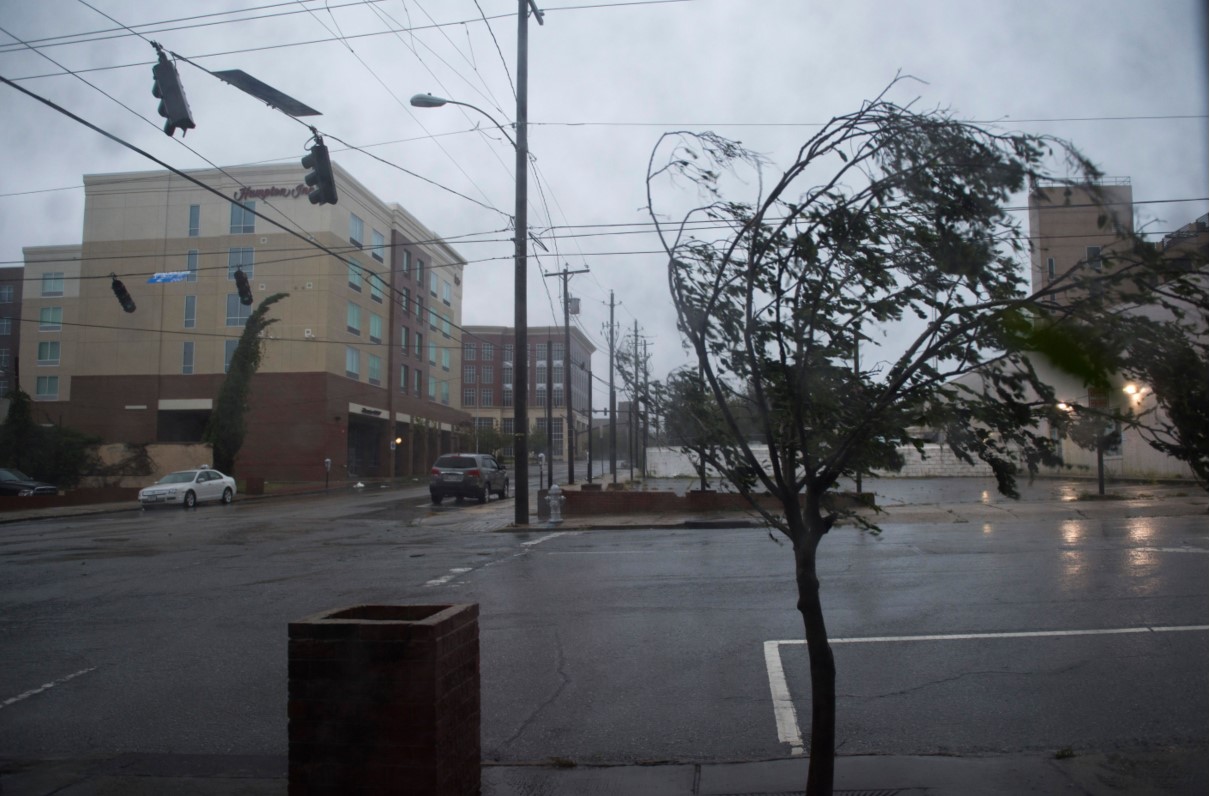Servicemembers, retirees, veterans, and military family members forced from their homes during Hurricane Florence may return to flooding, broken windows, and fallen trees.
Along with resources available to all of those in the storm's path, current and former military members may benefit from branch-specific aid programs, some of which are expanding to assist in the storm's aftermath. A quick breakdown, including eligibility rules, is below; those seeking assistance also can contact a Red Cross emergency communication specialist at 877-272-7337.
Army Emergency Relief
What: Since its founding, Army Emergency Relief has provided $1.9 billion in loans and grant for soldiers and retirees. On average, a servicemember requesting financial assistance from the organization receives about $1,700.
Although there are guidelines for filing loans and grants, the organization tries to go beyond them to help people, said Lt. Gen. Raymond Mason, USA (Ret), director of Army Emergency Relief.
“We always look at exceptions,” Mason said. “If it's the right thing to do, we're going to do it.”
Aid available: No-interest loans and grants.
Eligibility: Active duty, retirees, medically retired soldiers, surviving spouses and children, family members with military identification cards, and Reserve and National Guard soldiers and their families when the soldier is mobilized for 30 days or more. However, AER is waiving the 30-day requirement for Reserve and National Guard soldiers during Hurricane Florence, as well as other hurricanes that could follow.
Online: www.aerhq.org, or on Facebook. Donate at www.aerhq.org/Donate.
Navy-Marine Corps Relief Society
What: For more than 100 years, the Navy-Marine Corps Relief Society has been assisting sailors, Marines and their families during times of natural disaster and personal crisis.
Capt. Shelley Marshall, USN (Ret), communications officer for the society, said she anticipates people will apply for loans for home repairs and covering deductibles for insurance policies.
Aid available: Interest-free loans and grants.
Eligibility: Active duty, retiree, family members with military identification cards, surviving spouses, reservists on extended active duty of 30 days or more.
Online: Visit the agency's disaster relief page, or connect via Facebook. Donate here.
Air Force Aid Society
What: The society has been around longer than the Air Force, having been formed in 1942. It provided more than $15 million in direct aid in 2017 for emergency financial need as well as educational and community programs.
Aid available: Interest-free loans and grants. The Standard Assistance program covers multiple financial needs, while the Falcon Loan offers up to $1,000 in no-interest cash for short-term financial help.
Eligibility: Standard Assistance is available to active-duty and retired members and their families; spouses and dependent-age children of airmen who died on active duty or in retired status; and some Guard and Reserve members. The Falcon Loan is available to active-duty members and some Guard and Reserve personnel who've been activated under Title 10 orders.
Contact: www.afas.org or via Facebook. Click here for where to go for assistance, or here to donate to hurricane relief efforts.
Coast Guard Mutual Assistance
What: The agency, founded in 1924, has provided more than $187 million in aid, including more than $2.5 million to Coast Guard members in the aftermath of Hurricanes Harvey, Irma and Maria.
Aid available: Disaster-related aid comes via interest-free loans, which may be converted into grants (in whole or in part).
Eligibility: Active-duty and retired members; reservists “while serving on extended active duty,” per the website; active Coast Guard Auxiliary members; civilian employees; attached Public Health Service members and military chaplains (regardless of branch); and immediate family members of the above. Surviving family members may be eligible under certain circumstances.
Contact: https://cgmahq.org/ or via Facebook. Click here for an Application for Disaster Assistance, here to find contact information for your local representative, or here to donate.
Amanda Dolasinski is MOAA's staff writer. She can be reached at amandad@moaa.org. Follow her on Twitter @AmandaMOAA.

